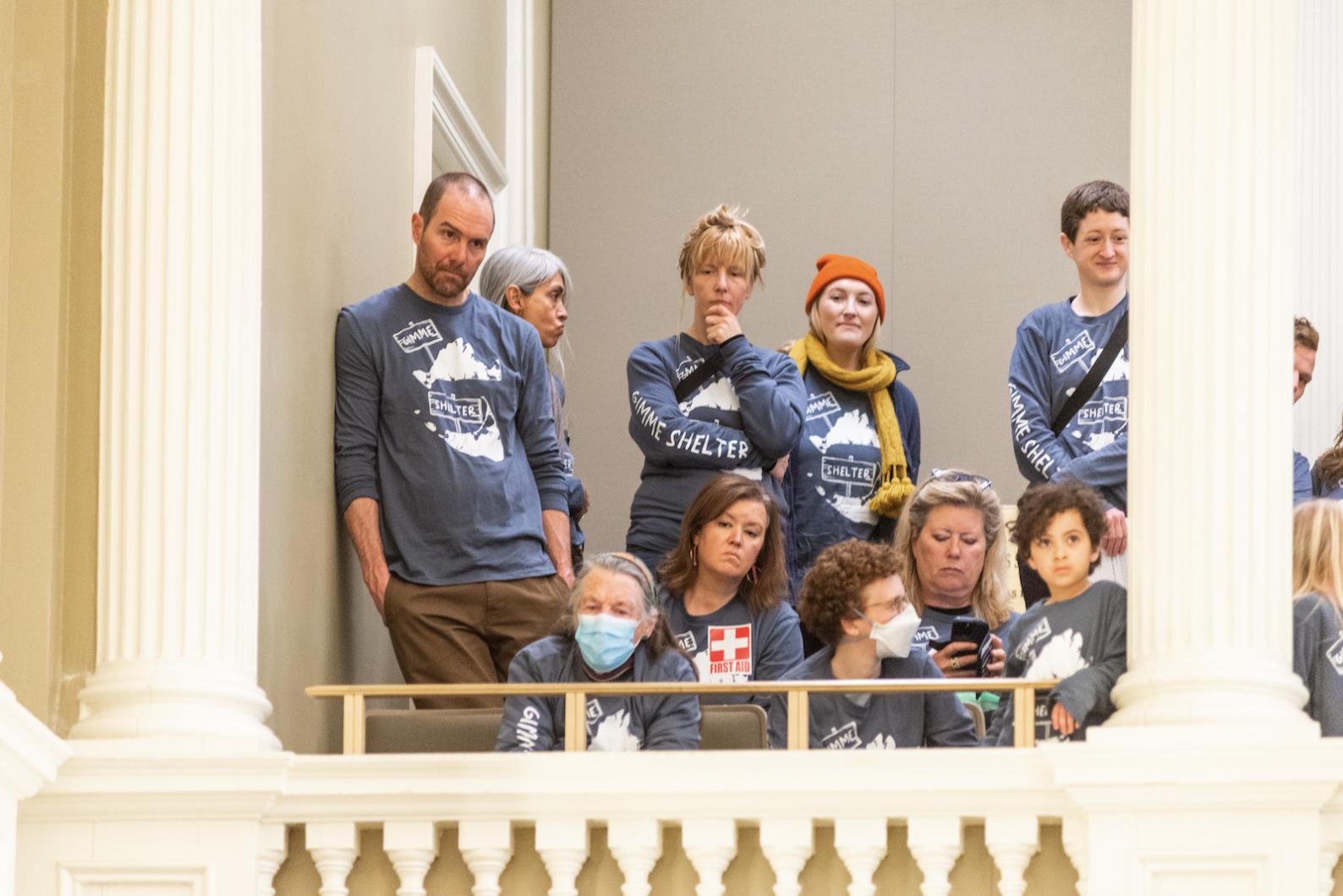A proposal to allow the Vineyard and other communities across the state to enact a fee on high-end home sales has stalled at the Massachusetts state house, dashing the hopes of Islanders who have sought the provision to chip away at the housing crisis.
The local option transfer fee, proposed as part of a massive housing bill from Gov. Maura Healey, would have allowed communities to institute a tax between .5 and 2 per cent on home sales over a $1 million.
But it was left out of the state Senate’s version of the bill released Monday, and it also was not included in the state House of Representatives version of the bill from earlier this month. Though there is a chance it could reemerge while the two chambers hash out their bills, the fee’s absence in both the House and Senate versions was a blow to Vineyard housing advocates.
“It’s disappointing,” said Mark Leonard, an Oak Bluffs select board member and former affordable housing committee chair. “We have to figure out alternatives to overcome that setback.”

All six Island towns petitioned the state for their own transfer fee and a housing bank that would support affordable housing efforts on the Vineyard. Advocates were heartened in October, when Governor Healey put forward her own take on the fee in the housing bill.
Though chances are now growing slimmer, some Islanders are still holding out hope that the transfer fee could make it back into the bill via an amendment.
“We are still pushing,” said Arielle Faria, the co-chair of the Coalition for the Creation of the Martha’s Vineyard Housing Bank, the group that has been spearheading the effort here.
Affordable housing has been one of the biggest issues for the Island. Housing waitlist queues number in the hundreds and the gap between what people can afford and the actual prices continue to grow ever larger.
As of 2023, an affordable house for the average Island family — costing less than 30 per cent of annual income in mortgage, taxes, and insurance — should cost $400,000, according to a recent Martha’s Vineyard Commission housing report. But the median single-family home on the Vineyard, as of this year, costs just over $1.3 million.
State Sen. Julian Cyr, the Island’s representative in the senate, said he would be filing amendments that could bring a new iteration of the local option fee back into the bill.
One version would raise the sales threshold to $2 million, and require other efforts for housing be undertaken before it was allowed. A series of other exemptions would also be included. The amendments will be part of the Senate’s scheduled debate on the bill Thursday.
“We are putting forward several different proposals to figure out a path forward,” Mr. Cyr said.
To hammer the need home to senators, the Vineyard housing bank coalition over the weekend helped Vineyarders submit more than 400 letters to state legislators calling for the housing transfer fee. They continued to make calls during the week to lawmakers’ offices to explain the housing crisis and the need for a steady revenue stream for housing.
“I think [housing is] the biggest thing shaping Island life right now,” said Islander Astrid Tilton, who was among the letter writers. “I hope they really hear that for the people they represent, this is the right decision.”
Though the transfer fee had support from the Vineyard, Nantucket, Boston and other communities, it was met with resistance from realtors. Other fiscal conservatives felt the additional tax was uncalled for, and suggested that towns and cities had other options to try and create more housing.
“More can be done by our legislative leadership than simply not raising taxes, they need to get into the habit of cutting taxes and costly policy provisions with the goal of making housing more affordable,” said Paul Craney, a spokesperson for the Massachusetts Fiscal Alliance. “It’s mystifying that this tax hike on housing was even being considered in the first place.”
The governor’s bill was slightly different from what the Vineyard had requested. In her bill, Governor Healey would have allowed towns to opt into a tax of .5 to 2 per cent of property sales of more than $1 million, or those above the county’s median home sale price – whichever is higher.
The Vineyard’s proposal would have been paid for by the buyer, not the seller as the governor envisioned.
If this had been enacted just a few years ago, Oak Bluffs could have had an extra $2 million for affordable housing, said Mr. Leonard. Right now, there are few dedicated funds for housing, meaning towns repeatedly have to go to town meeting to ask for money.
That makes it easier to map out projects and other housing efforts.
“You know you have a revenue stream and now you can plan,” Mr. Leonard said of the transfer fee.
Despite the setback, the bill still could inject $5 billion into housing, the single largest investment in the state’s history. The senate’s bill also included a more fleshed out provision that would dedicate $50 million toward housing in seasonal communities.
Dukes and Nantucket counties were specifically spelled out as qualifying for some of the money, the only two counties to do so.
Laura Silber, the Martha’s Vineyard Commission’s housing planner, said the seasonal communities language in the bill laid out new paths for Vineyard municipalities. Potential ideas include building units specifically for public employees, allowing towns to acquire year-round housing restrictions and sanctioning “tiny house” zoning.
Though the lack of a transfer is a setback, Ms. Silber saw some signs for hope in the seasonal language, which had been raised by Cape and Islands advocates in talks with state housing officials earlier this month.
“The Seasonal Communities designation toolkit as proposed in the Senate version of the bill would be a huge step forward in advancing solutions on the Islands, creating the path forward for public sector employee housing, year-round deed restrictions and other critical tools,” Ms. Silber said.







Comments (19)
Comments
Comment policy »